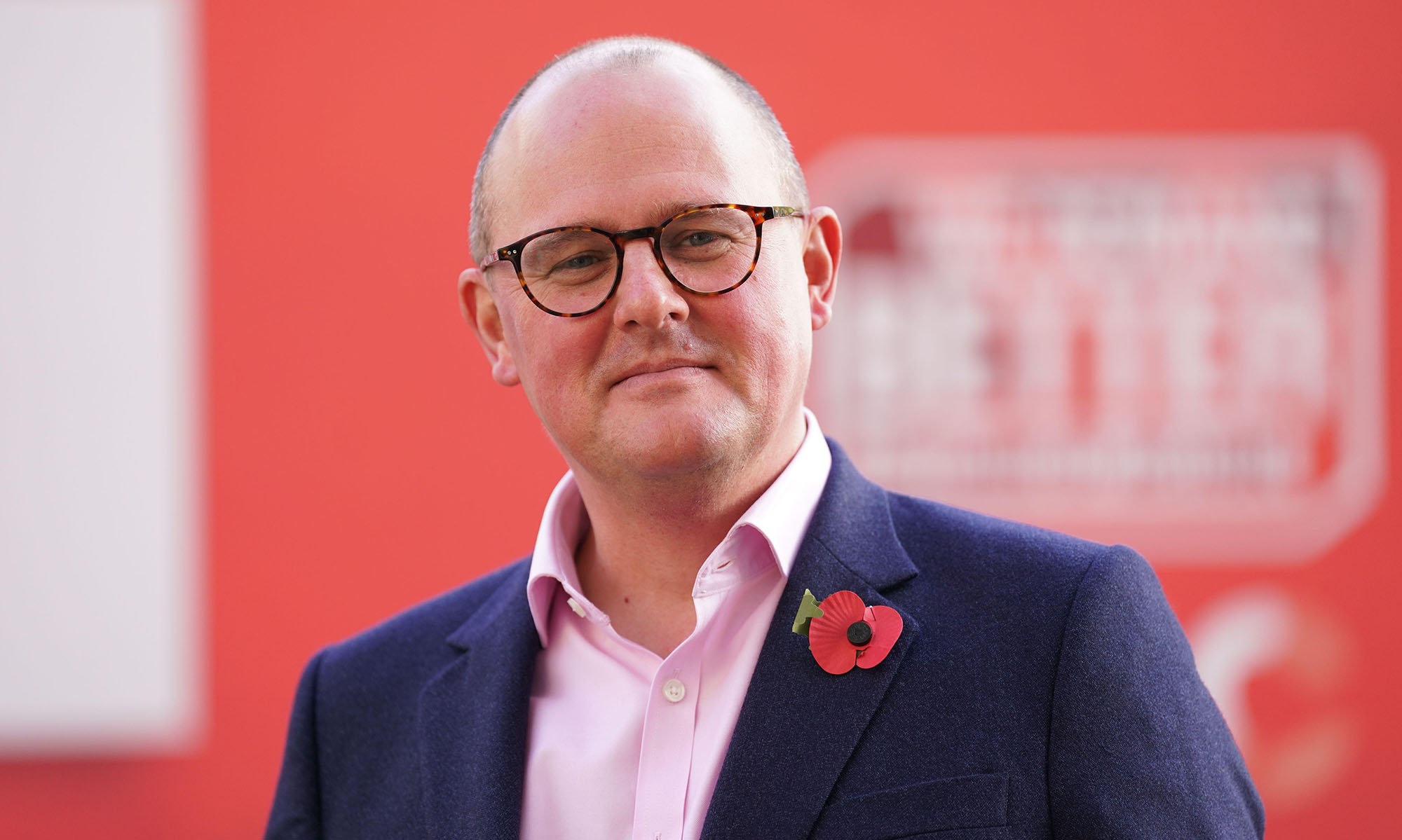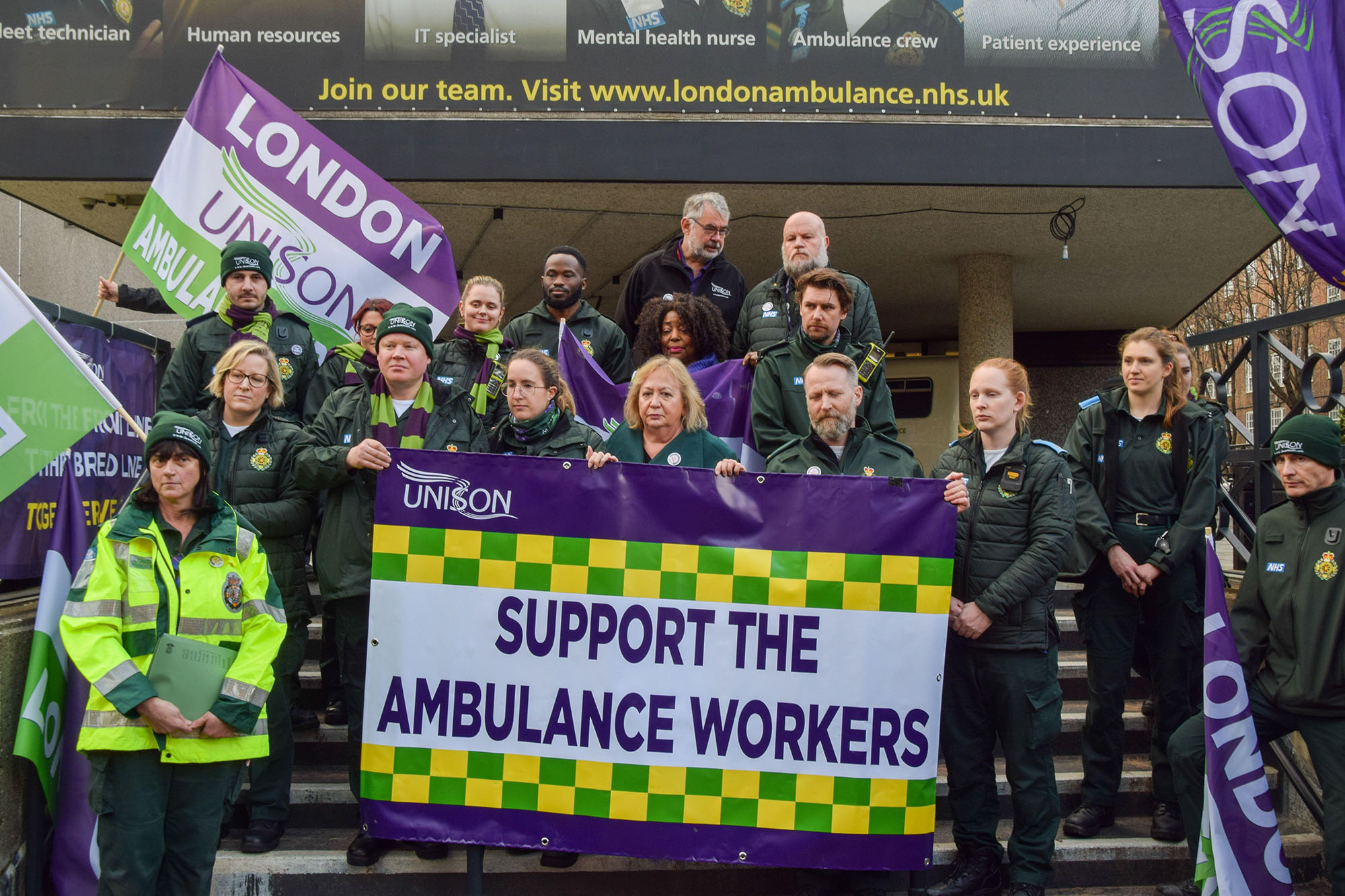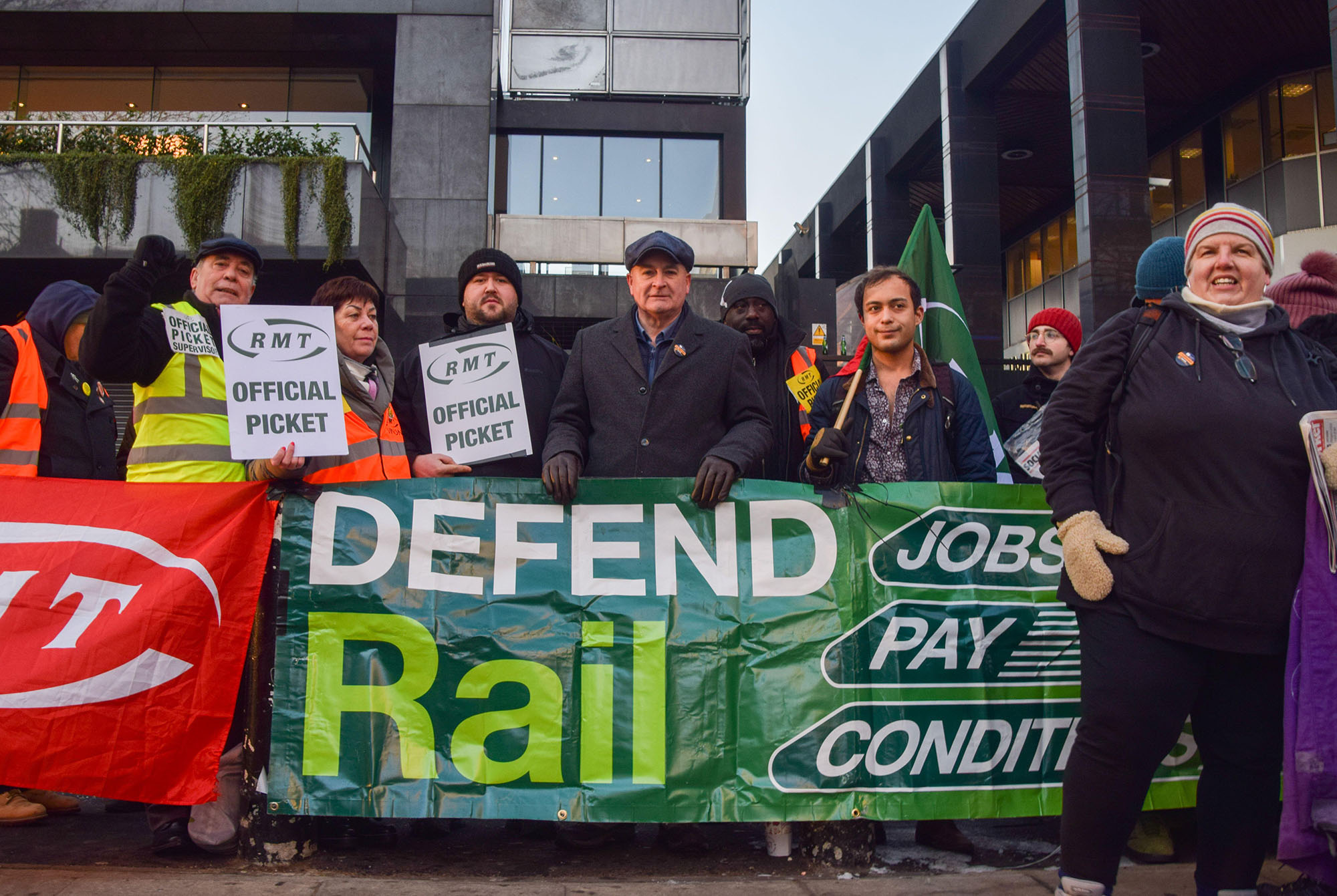Unions Vow To Take Government To Court Over Anti-Strike Laws
New General Secretary of the TUC Paul Nowak is urging the government to back away from new legislation aimed at making it harder to strikes to be called (Alamy)
7 min read
The government’s planned measures to try and limit strike action will “put them in breach of international law”, according to the incoming leader of the Trades Union Congress.
Paul Nowak, who will succeed Frances O'Grady as general secretary of the TUC in the new year, is threatening to take ministers to court if they follow through with threats to introduce minimum service levels in additional sectors during industrial action, and to try and raise the threshold in ballots for workers to vote for walkouts.
There is already a court case where a number of unions are trying to overturn laws allowing agency workers to be brought in to replace striking staff, but the TUC boss said if further measures are brought on to the statute book there will be wider legal issues.
“We think the cumulative impact of all these changes potentially will put the government in breach of international law,” Nowak said.
“So we'll certainly challenge them legally, and we'll be challenging them politically as well.”
But he said all the industrial action could be dropped almost immediately if the government put pay back on the table.
“None of this is inevitable, we could end the strikes tomorrow if the government came to the table, and was prepared to negotiate seriously with our unions and agree a fair settlement on pay,” added Nowak, who has been the TUC’s deputy general secretary since 2016.
He accused the government of “macho posturing” in its attitude towards talks, and said ministers were using independent pay review bodies as “human shields”.
The 50-year-old former call centre worker from Merseyside, who joined the GMB union at the age of 17 while working part-time at Asda, said the Prime Minister and senior members of his government “don't live in our world”.
 Incoming TUC general secretary Paul Nowak (Alamy)
Incoming TUC general secretary Paul Nowak (Alamy)
He is succeeding the widely-respected O’Grady at a time of widespread industrial action, with workers in a host of industries voting for strikes and more potentially to come, as the country deals with a deepening cost of living crisis this winter.
“This cost of living crisis, it's become apparent that it's actually in large part a wage crisis, and it's a crisis that has not been one or two years in the making, it's a crisis that's been the thick end of a decade and a half,” Nowak told PoliticsHome in his new office at Congress House in central London before Christmas, on the eve of an announcement by nurses that a new set of strikes would be held in January, and thousands of Border Force staged a mass walk-out at airports.
He said the pressures that public sector workers are under “would be bad enough this year, but it comes on the back of year after year of real terms pay cuts and a squeeze on people's living standards”.
New analysis from the TUC out today shows UK workers have lost on average £20,000 in real wages since 2008 as a result of pay not keeping up with the inflation.
In the public sector the figures are even worse, with nurses having lost £42,000, and midwives and paramedics both having lost £56,000 over the same period.
Having recently joined picket lines alongside nurses and paramedics, who took the highly unusual step of walking out twice this December, Nowak said there is “just that sense that they can't take another year of a fall in their real terms wages”.
 Ambulance workers took the unusual step of striking in December over pay (Alamy)
Ambulance workers took the unusual step of striking in December over pay (Alamy)
Strikes by NHS workers followed a series of walkouts by transport staff in recent months, as well as postal workers and now passport control officers at many major airports over Christmas. Teachers and firefighters are the next workforces due to be balloted, after people in many sectors were offered pay rises well below this year’s high rate of inflation.
The government has said salaries in line with inflation for public sector workers are unaffordable, but Nowak said there is “no evidence whatsoever that it's wages that are driving inflation in this country”. He pointed to a 31 per cent rise in profits for the leading companies last year, as well as “a bumper year for bonuses in the City of London”.
He is deeply critical of the stance taken by ministers in refusing to talk about pay, and is scathing of their plans to tighten the laws around strikes to prevent further disruption next year.
He called the government’s attitudes towards unions “schizophrenic” over the past few years, with ministers having worked closely with the TUC on furlough during the pandemic, and with transport unions on getting people back on the railways post-Covid-19. But he believed there is now "a real danger that it goes back to the sort of late 1980s playbook of union bashing and trying to drive a wedge between groups of working people”.
He said a Telegraph article by the Health Secretary on the eve of the first strike by emergency health staff, that declared "unions have made conscious choice to inflict harm on patients” had incensed workers.
“I can tell you when I went and spoke to those EMTs on the picket line, they were absolutely appalled and upset that a Cabinet minister would blame them for placing patients lives at risk when millions of lives have been placed at risk every single week because of the chronic understaffing in our NHS,” Nowak said.
“Every single one of those ambulance disputes, we had agreements in place with employers to keep the public safe, so-called ‘life and limb cover’, and I think the government needs to dial down the rhetoric and stop the escalation of tensions and start thinking about reaching out to those staff.”
 Rail unions have been involved in long-running industrial action (Alamy)
Rail unions have been involved in long-running industrial action (Alamy)
He said he “just really can't abide this macho posturing”.
"I think part of the problem with the current Cabinet is that a lot of them don't live in our world," Nowak continued.
“They don't use our schools, they don't go to our local GPs, they've got private healthcare, they’re insulated from the sort of day-to-day experience that millions of people - including people who voted for them - live though.”
Criticising plans to introduce tough new laws to curb strikes, he said the ministers “should be focused on resolving the causes of the strikes, rather than dealing with the symptoms”, but added that if the government is “undermining people's ability to take industrial action” then “we'll be challenging the government legally”.
The current offer for nurses made by the independent pay review body (PRB) is a pay rise of 4 per cent, well below the double digit rate of inflation, and far below the 19 per cent proposed by the Royal College of Nursing.
Barclay has said pay cannot be on the table in any talks, as it will chip away at the legitimacy of the PRB, but Novak said it is the other way round.
“I think the government clearly has been using the pay review bodies as a human shield, and I think what they're in real danger of doing is undermining the credibility of them and undermining the credibility of some of the individuals who are trying to do good a job on those PRBs,” he explained.
“The fact is the remit for those bodies is set very clearly by government, they set out what the financial envelope is, what they say they can afford, and effectively tie the hands of the PRB.”
Nowak said if they fail to either allow the body to run their calculations again, based on more up to date inflation stats and other economic metrics, that “unions will be starting to question the credibility of the PRBs and on what basis they should engage in the process next year”.
Several senior Tories and former ministers have urged the government in recent days to re-open pay negotiations, a move he sees as encouraging.
“I'm an Evertonian and so I'm an optimist by nature, it’s a triumph of hope over experience,” Nowak joked.
“But yeah, you've got to hope that the Government will see sense. I hope that the sensible wing of the Conservative Party manages to get that message across, that actually what you're doing is not taking on the ‘unions’ in inverted commas.
“You're taking on ordinary hard-working public servants and your constituents.”
PoliticsHome Newsletters
PoliticsHome provides the most comprehensive coverage of UK politics anywhere on the web, offering high quality original reporting and analysis: Subscribe
